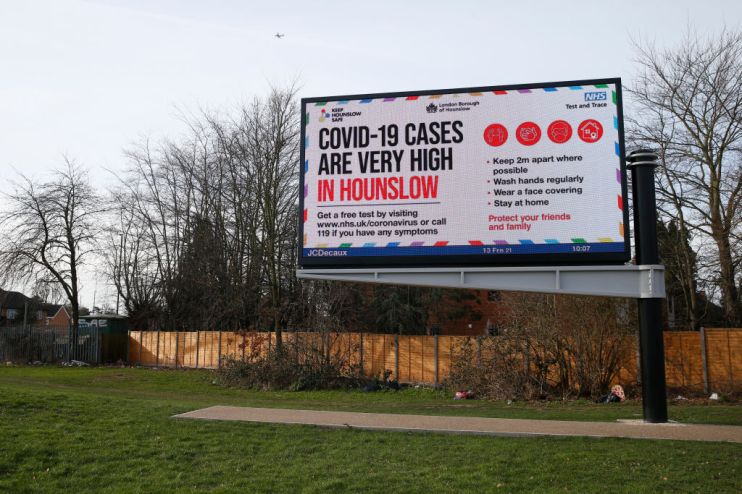Covid-19: Surge testing and vaccines to be introduced in Hounslow

Surge testing and additional vaccines will be rolled out in Hounslow amid concerns about the spread of Indian Covid-19 variant.
Health secretary Matt Hancock today told MPs that cases of the new Covid variant now stood at almost 3,000 after increasing by almost a quarter since Monday.
As a result, surge testing and extra vaccine supplies will be deployed to Hounslow in west London, which has been identified as an area of concern.
Bedford, Burnley, Kirklees, Leicester, and North Tyneside will also be given additional support.
“The race between the virus and the vaccine has got a whole lot closer,” Hancock said today.
While Prime Minister Boris Johnson has insisted there is “increasing confidence” that Covid vaccines will be effective against all variants, early evidence indicates the Indian variant is much more transmissible.
“What this means in practice is we are putting in place more testing and more testing sites,” the health secretary said. “And on vaccinations, we are making more vaccinations available to everyone who is eligible.”
Mayor of London Sadiq Khan said: “In Hounslow surge testing will be taking place, there will be more vaccines available for those who have already been invited to book, and second doses will be brought forward.
“I urge everyone who lives, studies or works in Hounslow to take a test as soon as you are invited to, in order to monitor and suppress the spread of the virus, and for all those invited to accept their vaccine as soon as you are offered it to ensure you are protected.”
The spread of the new form of the virus has sparked concerns that England’s exit from lockdown could be delayed. The current plan is to end all restrictions on 21 June.
However, the UK today announced the launch of a £19.3m programme to trial seven vaccines that could be used as a third booster jab to protect patients in the long term.
The UK has now vaccinated more than 70 per cent of its adult population. This means just under 40m people have received one jab, with 20.9m of them having received a second jab.